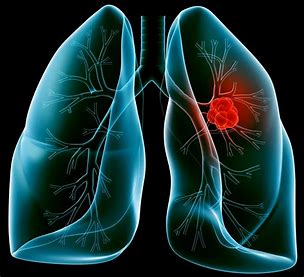For too long, people diagnosed with lung cancer have faced a
double whammy of despair and distress. Firstly, lung cancer is one of the most
fatal cancers. Secondly, there is still a stigma around lung cancer for people
who smoked. Both of these problems are set to change over the coming years.
According to the World Health Organization, lung cancer was
the most common cause of cancer death, with 1.8 million deaths attributed to it
in 2020.
If you are diagnosed with lung cancer, you have an 85%
chance of dying within five years.

So two questions: why it is so fatal, and why aren’t we
talking about it more? Let’s answer the first question first.
Why lung cancer is so fatal?
Surgery is still the best treatment for lung cancer, but
many people aren’t diagnosed until it’s too late for surgery.
People can live with lung cancer for many years before they
show any signs or symptoms, and screening for lung cancer is not yet
commonplace.
Why we are not talking about it?
The truth is that 80% of lung cancer is caused by smoking.
This has led to a stigma around the disease. Many people presume that a
patient��s illness is due to smoking, and that they could have just chosen not
to smoke. This is far from accurate. It’s not the individual’s fault they were
sold these cigarettes became addicted, it’s Big Tobacco that is really the
problem here. We don’t stigmatise any other cancer, even if it might have been
going out in the sun or eating too much barbecued meat. This stigma could lead
to delays in seeking treatment and this could impact long term outcomes.
What about lung cancer screening?
Lung cancer screening is a test to see if there are any
early signs of lung cancer in people who are not showing any symptoms. It
allows lung cancer to be caught at an early stage, which greatly improves the
chances of treating it successfully.
Some countries have started implementing government
screening programs for patients deemed “high risk”, but many countries do not.
This is partly because lung cancer screening is not yet advanced.
The only recommended screening test for lung cancer is
low-dose computed tomography (also called a low-dose CT scan). The problem is
that false positives have created a lot of over-diagnosis and unnecessary interventions
which can also cause harm.
This is changing. In countries like the UK, Canada and the
UAE, programs are being developed to introduce or expand lung cancer screening,
although the focus for many lung cancer campaigns still remains on quitting smoking.
In addition, a new lung cancer prediction tool has had some
success. The tool uses a mathematical formula to predict risk, based on a
combination of factors such as age, smoking intensity, duration and years quit,
as well as body mass index and family history of lung cancer.